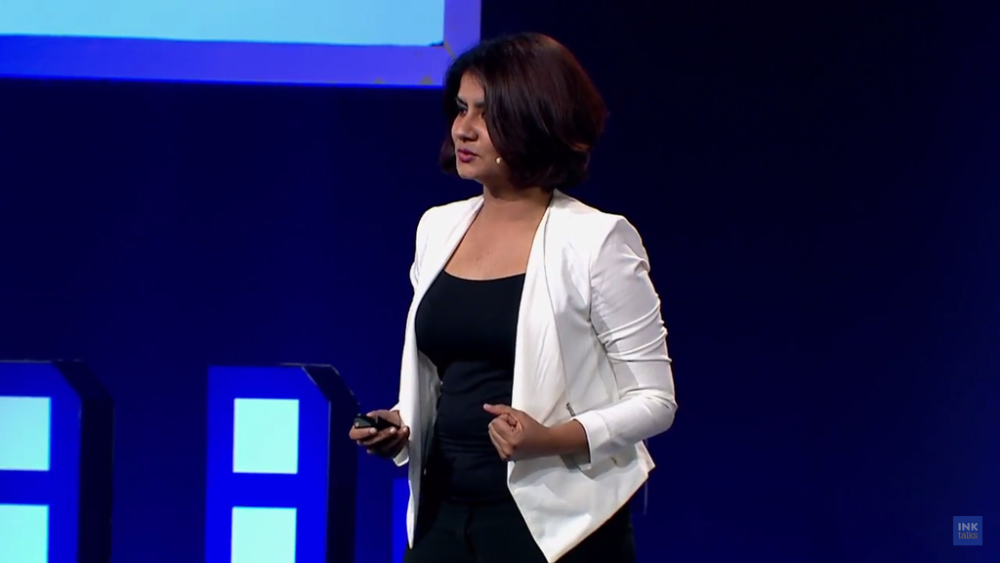By Pooja Singh
Mint, New Delhi
WWR Article Summary (tl;dr) This article takes a look at the journey of Anshulika Dubey, one of the founders of “Wishberry” a crowdfunding site based in India. The site focuses on creative projects, including films, music and art. Dubey says there were several challenges in building the company with her fellow female partner. One challenge was simply convincing people in India that a scalable crowdfunding site was a viable concept.
buy cialis super force generic buy cialis super force online no prescription
Another challenge was the bias against women entrepreneurship.
NEW DELHI
Five years before making it to the elite list of Forbes Asia magazine’s “Top 30 under 30”, Anshulika Dubey was working on a report on crowdfunding in the US social sector, while sitting in her McKinsey and Co. office in Gurgaon.
Crowdfunding, an online space where people can create campaigns to seek funds for their ventures, was a relatively unknown concept in India at that time. During her research, Dubey came across Kickstarter, a platform for budding entrepreneurs to get funds from angel investors.
She immediately wrote to Priyanka Agarwal, a former McKinsey colleague and founder of Wishberry, a crowdfunding space dedicated to raising money for social and charitable events such as marathons, explaining that crowdfunding went beyond charity and was more feasible and valuable for the creative sector in India.
Taken up with the idea, Agarwal invited Dubey to join Wishberry, and she did, in 2012. And that’s how the journey of Wishberry, as we know it today, started.
“Creative people in India are forced into conventional jobs because creative pursuits like music, film and dance are seen only as a hobby, not as a full-time career,” says Dubey, adding that most great ideas die in their planning stages due to lack of funding.
Agarwal adds, “To fulfil that need, we decided to focus on creative projects, including films, music, art, apps, comics and publishing,” says Agarwal, 30.
As of now, the 12-member Wishberry team has raised Rs.6.6 crore from more than 11,000 backers from around 60 countries. On 15 March, they won Digital Empowerment Foundation’s Social Media for Empowerment Award under the crowdfunding category.
Previous Chapter
Agarwal, a graduate of Wharton School of the University of Pennsylvania, US with a degree in management and technology program, always wanted to be an entrepreneur. After two failed attempts, she joined McKinsey as a consultant, but quit to start Wishberry in 2009 as a wedding gift registry website. She had to change track because “I realized that the target audience, the urban Indians, were too shy for such a system, which is popular abroad.” So she switched to raising donations. This was when Dubey, an English literature major from Delhi University’s Miranda House, approached her, suggesting a change in the track of Wishberry.
The initial phase
By the end of 2012, Agarwal and Dubey had shifted focus to creative crowdfunding, while keeping it open to all sectors (as opposed to 13 specific creative genres present today).
During the “changing” time, the two learned several lessons. “For instance, the all-or-nothing model of crowdfunding was not only important, but also the most successful because it built backers’ trust and campaigners’ accountability,” says Dubey.
They also learned that certain sectors were more amenable to rewards-based crowdfunding (offering products and merchandise in return for donations), as projects like films and music couldn’t really turn to conventional modes of funding like a venture capital.
One of the main challenges was faced during the seed round. It was difficult to sell the idea to investors because crowdfunding is barely a decade-old industry across the globe, says Agarwal. “Wishberry’s concept was unproven, and the scale of crowdfunding for creative projects is not the same as conventional e-commerce start-ups. So a major task was to find people who were as excited about the project,” says Dubey. Another challenge was the bias against female entrepreneurs.
The two received guidance from Vijay Anand, founder of incubator The Startup Centre in Chennai, who helped them through the funding process, and Datta Dave who, being from the film industry, provided the co-founders with insights into their way forward.
The digital advantage
With neither co-founder having a technological background, the technology support for Wishberry had to be outsourced.
Some more reasons for this included the constant changing business model, expensive in-house talent and the difficulty in successfully recruiting one owing to lack of technology expertise. One of the advantages of outsourcing was flexibility (the product is built on WordPress, a blogging platform which is cost-effective and allowed flexibility to change). “After raising seed funding in January last year, we hired an in-house lead engineer who is building our product version 3.0,” says Agarwal, adding, “while we’re focussing fully on the Web version of Wishberry, mobile is equally important for us, as 30-40% of Wishberry’s traffic comes from mobile.”
Future plans
In 2016, the co-founders want to take over the independent film space. Their vision for the year is “Bigger than Bollywood”. Dubey will be leading this by first tapping into the Marathi film industry. Agarwal, meanwhile, will focus on making backers stick to Wishberry and funding more ideas regularly.
Mint has a strategic partnership with Digital Empowerment Foundation, which hosts the Manthan and mBillionth awards.














































































































































































































































































































































































